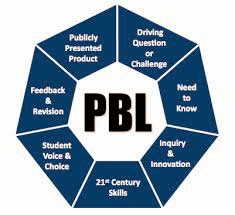> The surveys a number of EFL/ESL International learners in Malaysia.
> The findings > majority of learners find > CALL system helpful in improving their language skills, specifically in grammar component.
> The findings > majority of learners find > CALL system helpful in improving their language skills, specifically in grammar component.
Abbreviations:
1. CALI : Computer Assisted Language Instruction
2.CALL : Computer Assisted Language Learning
3.FL: Foreign Language4.GTM: Grammar Translation Method
5.PBL: Project-Based Learning
6.SL: Second Language
7.TELL: Technology- Enhanced Language Learning
INTRODUCTION
Constructivism Theory = Learning by doing & Learning through technology
This research aims to tackle this issue and investigate the effectiveness of CALL in an ESL/EFL context in Malaysia.
Computer Assisted Language Learning ( CALL)
- Mid 1960s, portable, tape-recorder, film strip projecter general use in the classroom language laboratory.
- Media motivate students by presenting language by bringing real life experience into the classroom.
- CALL is a tool to enable teacher to facilitate language learning process.
Learners and teachers can benefit from CALL systems
Technology from the Point of view of Constructivism
Cognitive constructivism refers to the student - centred aspects. Students are not passive recipients of learning; they construct their own knowledge from information receioved.
Social constructivism refers to student assistance. More advanced students help other students understand ideas or concepts beyond their baseline level of understanding (Vygotsky, 1986)
PBL is based on constructivist pedagogy which intends to engage learners in deep learning process.
PBL framework emphasizes more on cooperation and collaboration between team workers.They can be independent learners and be on their own by doing the exercises themselves.
Case Study
EFL learners in English institute located in Penang, Malaysia.
This study revolved students of elementary levels of English
106 International learners - Some of these students rated the effectiveness of the computer program for different components.
Some did only for one specific component.
* Components are reading, writing, conversation and grammar.
Findings and Discussion
The findings reveal that 89.6% of participants find it helpful in learning English. Moreover, 92.9% of them find it helpful in their reading, and 93.5% think that it helps them to learn writing skills very well by using CALL system. In conversation component, 82.4% of the participants believe that CALL system is beneficial to them to learn and practice conversation but all of the participants find CALL effective in their grammar skill.
Conclusion
Finding of this study reveal that most EFL/ESL learners recognized the benefits of using technology in learning English. In addition, all of the participants found computers helpful in learning grammar.
1. CALI : Computer Assisted Language Instruction
2.CALL : Computer Assisted Language Learning
3.FL: Foreign Language4.GTM: Grammar Translation Method
5.PBL: Project-Based Learning
6.SL: Second Language
7.TELL: Technology- Enhanced Language Learning
INTRODUCTION
Constructivism Theory = Learning by doing & Learning through technology
This research aims to tackle this issue and investigate the effectiveness of CALL in an ESL/EFL context in Malaysia.
Computer Assisted Language Learning ( CALL)
- Mid 1960s, portable, tape-recorder, film strip projecter general use in the classroom language laboratory.
- Media motivate students by presenting language by bringing real life experience into the classroom.
- CALL is a tool to enable teacher to facilitate language learning process.
Learners and teachers can benefit from CALL systems
Technology from the Point of view of Constructivism
Cognitive constructivism refers to the student - centred aspects. Students are not passive recipients of learning; they construct their own knowledge from information receioved.
Social constructivism refers to student assistance. More advanced students help other students understand ideas or concepts beyond their baseline level of understanding (Vygotsky, 1986)
PBL is based on constructivist pedagogy which intends to engage learners in deep learning process.
PBL framework emphasizes more on cooperation and collaboration between team workers.They can be independent learners and be on their own by doing the exercises themselves.
Case Study
EFL learners in English institute located in Penang, Malaysia.
This study revolved students of elementary levels of English
106 International learners - Some of these students rated the effectiveness of the computer program for different components.
Some did only for one specific component.
* Components are reading, writing, conversation and grammar.
Findings and Discussion
The findings reveal that 89.6% of participants find it helpful in learning English. Moreover, 92.9% of them find it helpful in their reading, and 93.5% think that it helps them to learn writing skills very well by using CALL system. In conversation component, 82.4% of the participants believe that CALL system is beneficial to them to learn and practice conversation but all of the participants find CALL effective in their grammar skill.
Conclusion
Finding of this study reveal that most EFL/ESL learners recognized the benefits of using technology in learning English. In addition, all of the participants found computers helpful in learning grammar.


ไม่มีความคิดเห็น:
แสดงความคิดเห็น